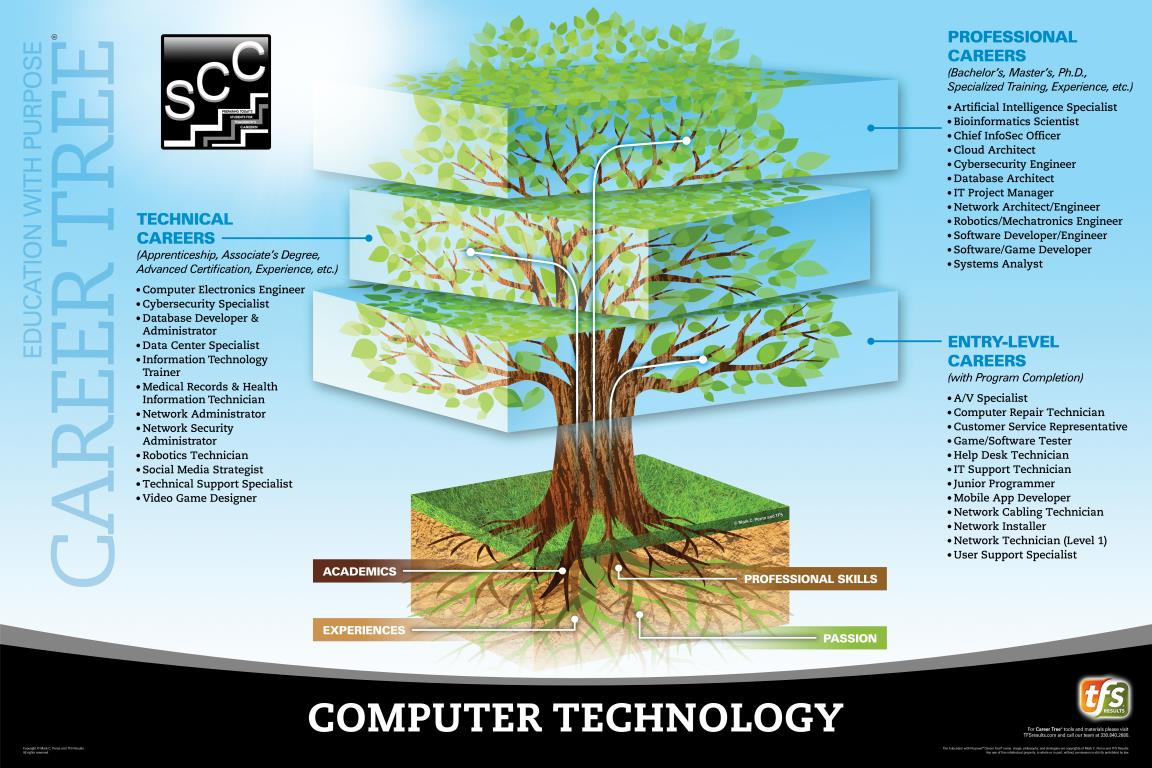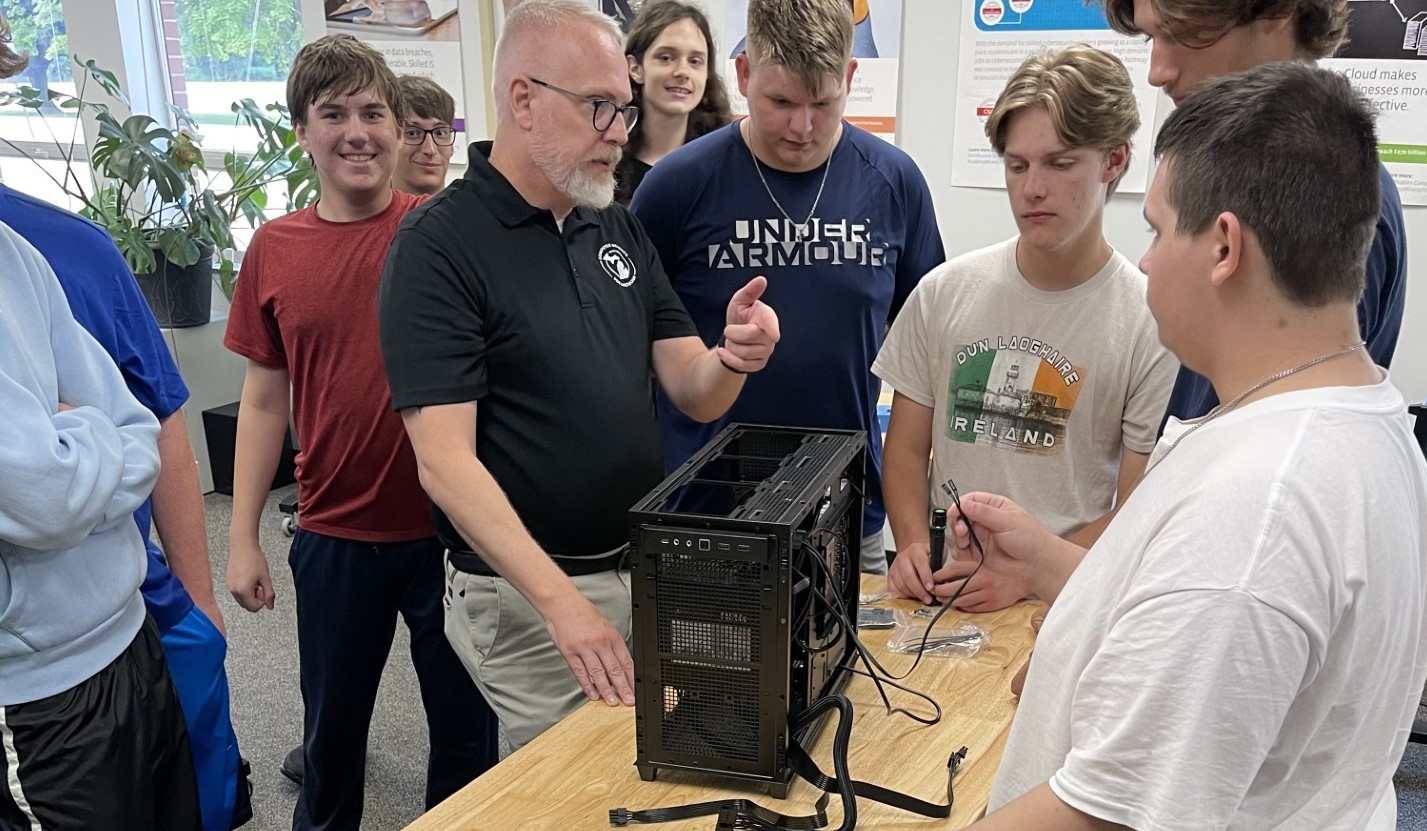Program Description
Computer technology has revolutionized the way we live, work, and interact with one another. From personal computers and smartphones to supercomputers and artificial intelligence, computer technology has become an indispensable part of our daily lives. The importance of computer technology lies in its ability to automate tasks, process large amounts of data, and connect people from all over the world. Thanks to computers, we can perform tasks that were once impossible or time-consuming, such as online shopping, banking, and communication.
Moreover, computer technology has also transformed various industries, including healthcare, finance, and education. With the help of computers, healthcare providers can diagnose diseases more accurately and efficiently, financial analysts can analyze market trends and make informed decisions, and students can access educational resources from anywhere in the world. In short, computer technology has had a profound impact on our society, and its importance will only continue to grow as we rely on it more and more to improve our lives and solve complex problems.
More Information
If you would like more information about the Computer Technology program please contact Walter Robison at wrobison@sanilacisd.org
Course Content
The CompTIA Tech+ course was designed for students who are interested in Information Technology but have limited technical knowledge of computing systems. Students learn foundational concepts related to computer hardware and software, networking, databases, programming, Information Systems, and data security. In addition to instructional videos and textual content, the course includes over 100 hands-on labs to reinforce the concepts students are learning. The course also introduces students to a wide range of IT careers. It covers all objectives necessary to pass the CompTIA Competency in IT Fundamentals exam as well as the CompTIA Tech+ (FC0-U61) exam.
The Tech+ certification covers a range of IT-related subjects, including:
- IT basics: Fundamental concepts and terminology.
- Hardware: Understanding computer components and peripherals.
- Software: Basic knowledge of operating systems and software applications.
- Networking: Basic understanding of networking concepts and protocols.
- Security: Introduction to security best practices and awareness.
- Basic troubleshooting: Identifying and solving common IT problems.
TestOut PC Pro prepares students for the modern demands of entry-level IT positions. Demands for IT Support Technicians are changing as the needs of remote workforces become more prevalent. This course focuses on the underlying technology that allows modern IT systems to operate and prepares students to set-up, support, and troubleshoot these systems. Essential topics include:
- Computer Hardware
- Operating Systems
- Installation and Implementation
- File and System Management
- Peripheral Devices
- Printing
- Mobile Technologies
- Networking
- Security
- Troubleshooting
TestOut PC Pro offers hundreds of lessons and practice questions to help students master the concepts they will encounter on the CompTIA A+ certification exams. This course and certification will give students the skills and confidence to pursue a career in technology.
TestOut Network Pro helps students to advance their knowledge and skills in connecting devices to the network in a professional environment. Network Pro covers networking and telecommunications concepts and skills to help students prepare to enter the workforce as an IT Network Administrator. In this course, student will learn:
- Networking Basics
- Networking Devices and Connectors
- IP Configuration
- Routing and Switching
- Network Management
- Wireless, LANS, and WANS
- Network Security
- Network Policies and Procedures
Network Pro also prepares students for the CompTIA Network+ certification exam and the TestOut Network Pro certification exam. Obtaining these certifications provides businesses the assurance they need to know that they are hiring the right person for their networking job.
TestOut Security Pro prepares students to become cybersecurity professionals. Demand for cybersecurity positions is up 35% year over year. This is a crucial part of IT implementation, especially with growing cloud-based systems and remote workforces. This course covers a wide array of security topics to help prepare students for the CompTIA Security+ certification, and provides the required principal knowledge needed to be successful in any cybersecurity role. Topics include:
- Threats, Attacks and Vulnerabilities
- Physical Security
- Network and Host Design and Diagnosis
- Device Infrastructure
- Identity, Access and Account Management
- Cryptography and PKI
- Wireless Threats
- Virtualization, Cloud Security and Securing Mobile Devices
- Securing Data Applications
- Security Assessments
- Incident Response, Forensics and Recovery
- Risk Management
- Governance and Compliance
TestOut Security Pro offers hundreds of lessons and practice questions to help students master the concepts they will encounter on the CompTIA Security+ certification exams. This course and certification will give students the skills and confidence to pursue a career in technology.
Hands On Projects
- Install Software
- Build, Upgrade and Repair Computers
- Learn Troubleshooting Skills
- Install and Use Windows and Linux
- Create Virtual Machines
- Build a Shmup using Pico-8
- Participate in Game Jams
- Create Digital Art and Music
- Create with Code using Unity
- Participate in picoCTF
- Terminate Cables
- Design Networks
- Subnet a Network
- Learn 3D modeling with Blender
- Troubleshoot Wireless Networks
- Program using Python
- Program Retropi on a Raspberry Pi
- Program Mobile Applications
- Work with SQL Databases
- Create a Resume
Why Computer Technology?
- In-demand Skills: Focus on practical, in-demand skills that are directly applicable to the workplace. This can include hardware and software troubleshooting, network management, programming, cybersecurity, and more.
- Preparation for IT Careers: Prepare a students for careers in the rapidly evolving field of information technology. Completing a CTE course can provide a solid foundation for pursuing roles such as IT support specialist, network administrator, systems analyst, or programmer.
- Industry Certifications: Computer Technology as a CTE program aligns with industry certifications, such as CompTIA A+, Network+, or Microsoft certifications. These certifications can enhance job prospects by validating specific skills and knowledge.
- Hands-On Experience: Computer technology includes practical, hands-on experiences. This hands-on approach helps students develop problem-solving skills and gain confidence in applying theoretical knowledge to real-world situations.
- Adaptability: In today's technology-driven world, computer skills are essential in various industries. Computer Technology as a CTE course provides students with a versatile skill set that is transferable across different sectors, increasing their adaptability in the job market.
- Problem-Solving and Critical Thinking: Computer Technology emphasizes problem-solving and critical thinking skills, which are valuable in many aspects of life and various career paths.
Overall employment in computer and information technology occupations is projected to grow much faster than the average for all occupations from 2022 to 2032. About 377,500 openings are projected each year, on average, in these occupations due to employment growth and the need to replace workers who leave the occupations permanently.
Sanilac Career Center Game Jam 2024
Teams of students working collaboratively created a video game within a short time frame. The primary goal of the Game Jam is to have student experience the various aspects of protyping and developing a game. This includes:
- Programming using Unity, Unreal Engine, Godot, GDevelop, GameMaker, etc.
- Game Design
- Digital Artistry
- Sound Engineering
Click this link to see the 2023-24 Computer Tech Game Jam Submissions
Click this link to see the 2024-25 Computer Tech Game Jam Submissions
Industry Certifications
- CompTIA Tech+
- CompTIA A+
- CompTIA Network+
- CompTIA Security+
- CompTIA Linux+
Occupations
- Computer and Information Research Scientist $131,490
- Computer Network Architects $120,000
- Computer Programmer $93,000
- Computer Support Specialist $57,910
- Computer Systems Analyst $99,270
- Database Administrators and Architect $101,000
- Information Security Analysts $102,600
- Network and Computer Systems Administrator $80,600
- Software Developers, Quality Assurance Analysts, and Testers $109,000
- Web Developers and Digital Designers $78,300
*All career median salary information is courtesy of the U.S. Bureau of Labor Statistics (BLS)
For College Bound Students
Computer Technology provides students with valuable skills to use while financing their college education.
Students earning a "B" average or better may be eligible for up o 24 college credits through articulation agreements with:

